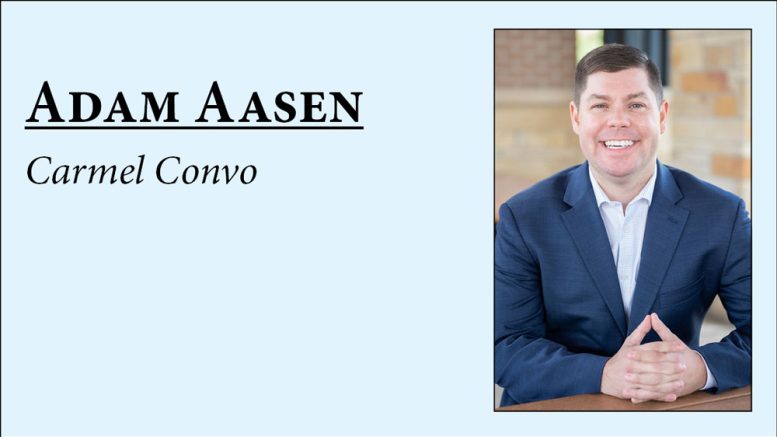A lot of time and money is spent on vehicles. The average American spends 6 percent of their waking hours in a vehicle and about $800 a month out of their income.
This is probably why more Americans are looking for opportunities to spend time outside of their vehicles. We love our cars, but even in Indiana – the land of motorsports – we can use a break.
On a beautiful day, people want to go to the “walkable” part of town and go shopping and dine out. They want to ride their bikes or go on a short run. They want to walk their dogs and push strollers.
Across the largest 35 metropolitan areas in the United States, only 1.2 percent of land mass is in walkable urban areas. That small fraction of land generates 20 percent of the GDP in the entire U.S. The whole country.
Walkable urban areas are good for business.
In Carmel, this is no secret. More than two decades ago, before Carmel Mayor Jim Brainard took office, our city didn’t have a real downtown. There were some great stores and restaurants, but they were spread out. Brainard helped accumulate land and pitch private-public partnerships to create a walkable downtown core.
Now, Carmel residents and visitors enjoy a widened Monon Trail that takes them to the Carmel City Center, The Palladium, Carmel City Hall, Midtown, the Carmel Arts & Design District and more. Sidewalks, paths, and crosswalks make it easier to get around, even allowing you to bike or run all the way from your home.
Homes and businesses along the Monon Trail have become our version of beach-side property. People will pay extra money to live in a walkable area. Business headquarters who have relocated to these areas have a competitive edge when hiring new workers.
While this is certainly exemplified in warmer weather months, you see residents taking advantage of trails and paths all year long.
This spring, when you see a large crowd of people gathering outside of Midtown Plaza or a long line of people waiting to eat at the restaurants located near the Monon, remember that these walkable areas didn’t just happen by magic. It took the leadership of government visionaries, alongside strong business partners, to create the vibrant walkable areas in Carmel.
Adam Aasen is a city councilor representing Carmel’s southeast district. Find out more at adamaasen.com.

